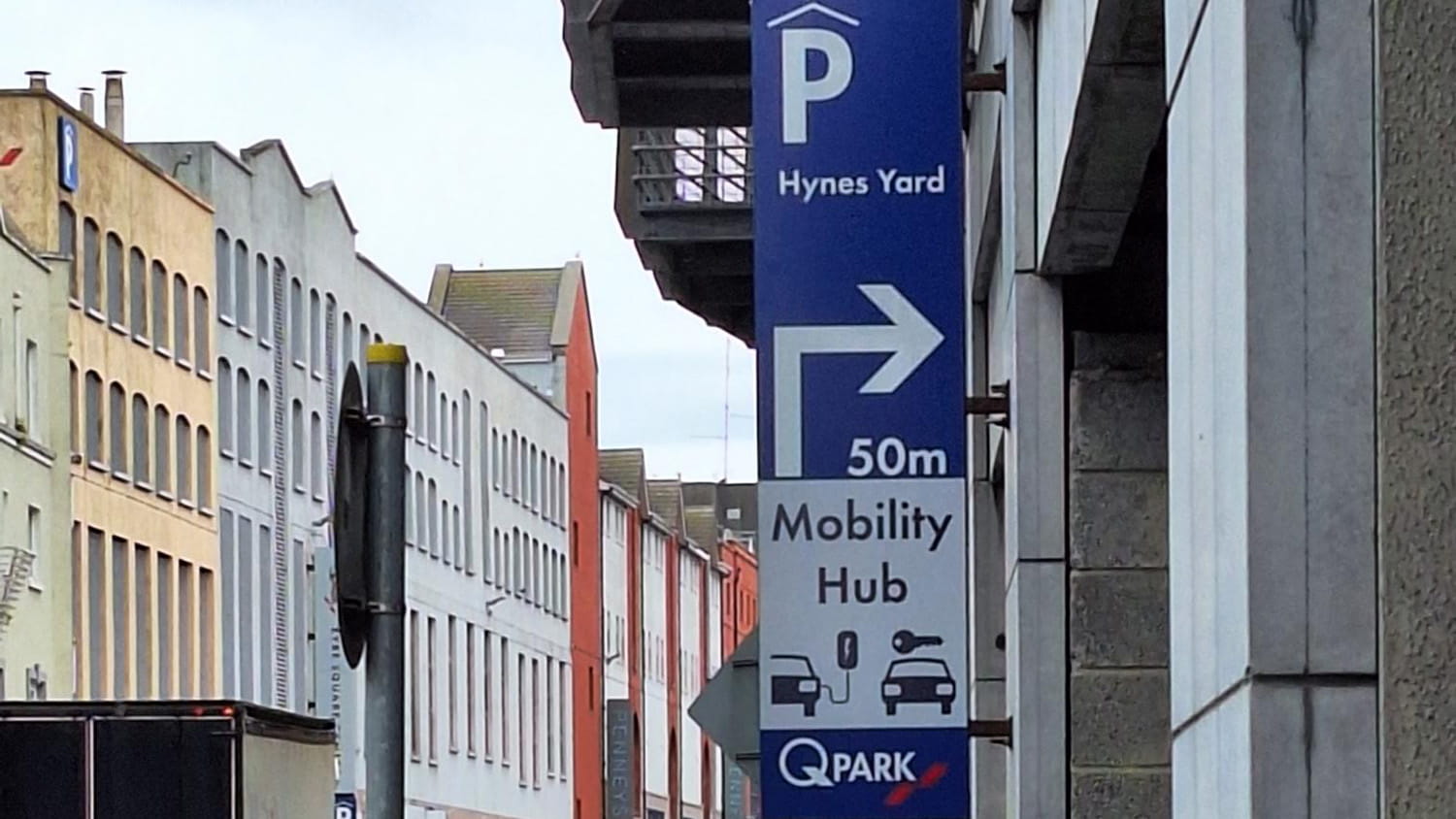
| Your guide to Summer 2025’s biggest events and where to park for less. From sold-out stadium shows to city-wide festivals, here’s how to make the most of the season with convenient parking and exclusive discounts.
Read more
As we stand on the brink of a new era, the landscape of urban mobility is undergoing a profound transformation with Q-Park at the very centre of the latest developments.
As we stand on the brink of a new era, the landscape of urban mobility is undergoing a profound transformation with Q-Park at the very centre of the latest developments. The year 2024 promises to be a milestone in the pursuit of sustainable urban living, with innovative technologies, smart infrastructure, and eco-conscious initiatives reshaping the way we move within our cities. In this blog, we will explore what sustainable urban mobility will look like in 2024 and how these changes are poised to create more efficient, greener, and people-centric urban environments.
Rise of Electric Vehicles
One of the most significant shifts in urban mobility is the widespread adoption of electric vehicles and the integration of autonomous driving technologies. In 2024, cities are expected to have extensive electric charging infrastructure, making it convenient for residents to transition from ICE (internal combustion engines) to EVs. Q-Park are already leading the way with their current rollout of EV Charging Points with many installed across the country. Governments and private entities are likely to offer incentives to promote the purchase of electric vehicles, reducing the carbon footprint of urban transportation.
Multi-Modal Connectivity
In 2024, sustainable urban mobility will revolve around the concept of multi-modal connectivity. Cities will invest in integrated transportation systems that seamlessly connect various modes of transportation, such as buses, trains, bicycles, ride-sharing and parking. Users will have access to a single platform where they can plan, book, and pay for their entire journey, combining different modes of transport for optimal efficiency.
Bike-sharing schemes will become more prevalent, with dedicated lanes and secure parking spaces, such as those in Q-Park Mobility Hubs encouraging residents to embrace cycling as a clean and healthy mode of transport.
Smart Infrastructure and IoT Integration
The year 2024 will witness the widespread implementation of smart infrastructure and the Internet of Things (IoT) to enhance the efficiency of urban mobility. This interconnected network will enable dynamic traffic management, with traffic lights adjusting based on real-time traffic conditions. Additionally, smart parking solutions will guide motorists to available parking spaces, reducing unnecessary fuel consumption and emissions associated with searching for parking.
Last Mile Delivery sector expansion.
The Last Mile Delivery sector is poised for transformative growth, driven by a confluence of technological advancements and shifting consumer expectations. Rapid adoption of cutting-edge technologies, such as autonomous vehicles, drones, and advanced route optimisation algorithms, will streamline and enhance the efficiency of last-mile operations. Companies in this sector are likely to prioritise sustainability, with a notable increase in the use of electric vehicles and eco-friendly packaging solutions. With that there will be an increased focus on finding the space and facilities to operate from, such as those found in Q-Park Mobility Hubs.
Real-time tracking and communication systems will become more sophisticated, providing customers with precise delivery updates and greater control over their shipments. E-commerce giants and logistics providers are expected to engage in strategic partnerships and investments to fortify their last-mile capabilities, ensuring faster and more reliable deliveries. Moreover, the sector will likely witness increased emphasis on data analytics and artificial intelligence to further refine delivery processes and customer experiences.
Conclusion
As we step into 2024, the vision of sustainable urban mobility is becoming a reality. Electric and autonomous vehicles, multi-modal connectivity, smart infrastructure, and the last mile delivery growth are converging to create a transportation ecosystem that is efficient, eco-friendly, and user-centric. The coming years will undoubtedly witness further advancements, but the groundwork laid in 2024 is poised to shape the future of urban mobility for generations to come. By embracing these innovations, cities can pave the way for a more sustainable and resilient urban future.
Q-Park are leading the way in the parking sector in the creation of Mobility Hubs, to find out more and watch a video from our working example in Central London, click here.
About Q-Park
Q-Park is one of the three leading providers of parking facilities in West Europe, whether wholly owned, leased, managed or in a hybrid business model. Q-Park is notable for its quality approach and has a portfolio comprising over 677,000 parking spaces in over 3,400 parking facilities in the Netherlands, Germany, Belgium, Great Britain, France, Ireland, and Denmark. Q-Park has numerous mobility hubs which provide access to a variety of mobility solutions. We house and support a range of activities from last mile logistics, fleet charging hubs, micromobility and car sharing services which help support urban accessibility, sustainability and liveability.





